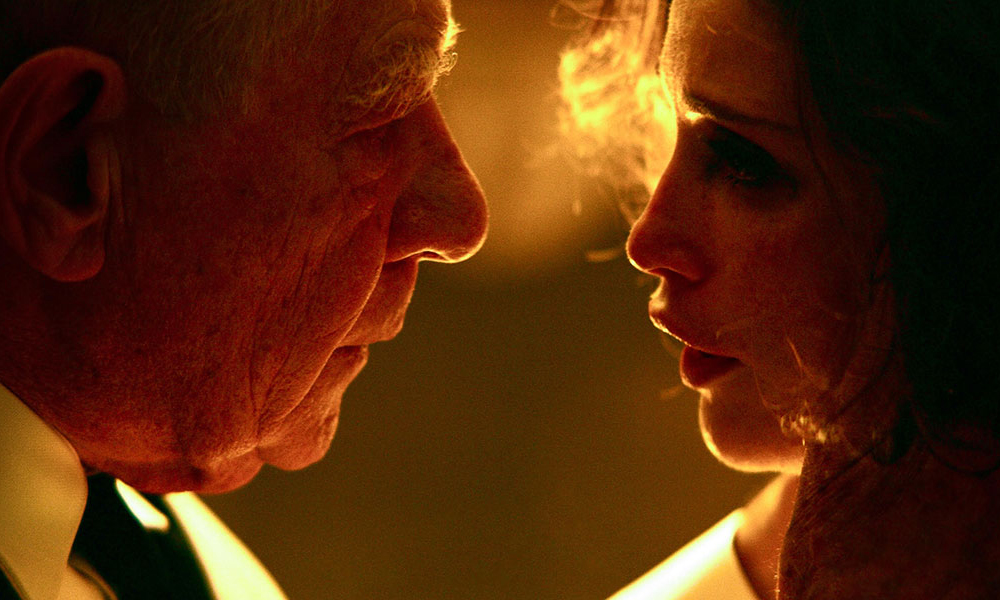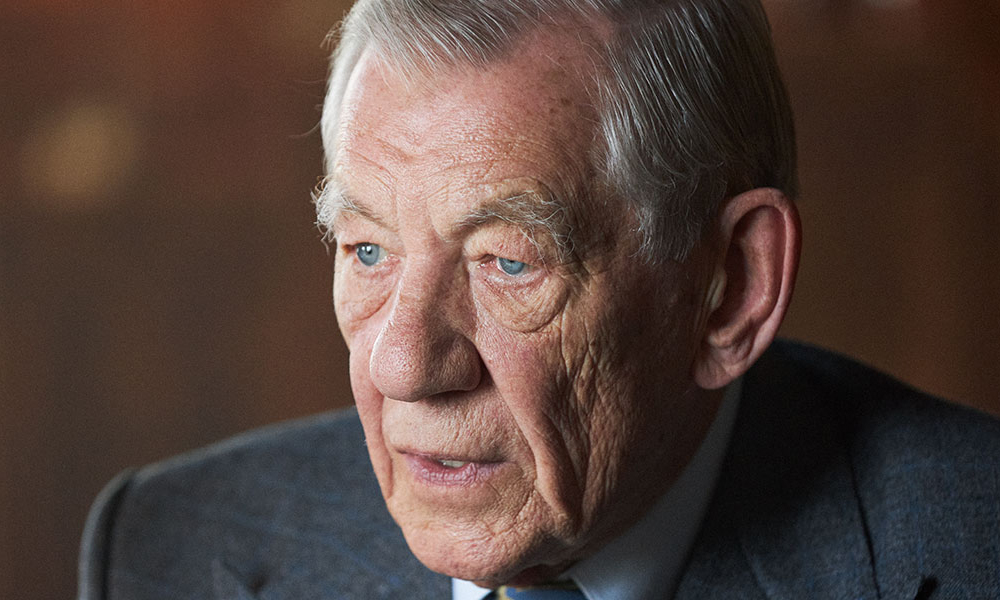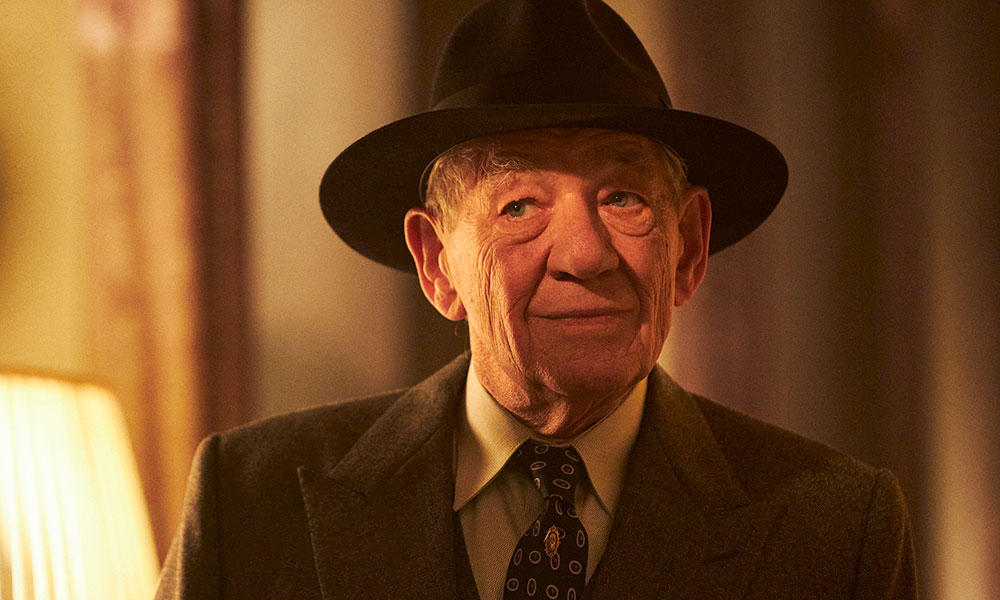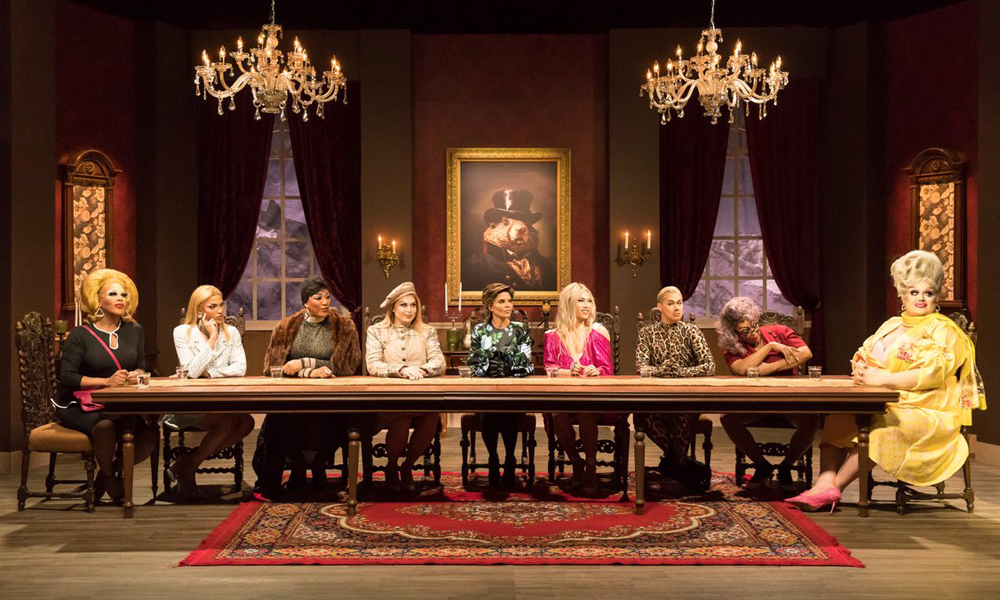Sir Ian McKellen stars as the titular critic whose downfall is articulated by notable screenwriter Patrick Marber and director Anand Tucker, based on the novel Curtain Call by Anthony Quinn…
“We did what we did and now we have to live with it.”
The audience present at the world premiere of The Critic at the 2023 Toronto International Film Festival were treated to a plethora of the film’s cast and crew for a lively Q&A post-screening. A rarity given the ongoing SAG-AFTRA and Writers Guild strikes going on in the United States, director Anand Tucker, writer Patrick Marber, and cast members Gemma Arterton, Ben Barnes, and Alfred Enoch boasted about working with the one and only Sir Ian McKellen. The out actor was available to address the crowd via video projected onto the large silver screen of the Princess of Wales Theatre as McKellen is currently starring on the London stage. Thunderous applause filled the room once McKellen’s face appeared on the screen, a sound that doesn’t fit well with the cantankerous character the icon portrays in The Critic.
McKellen embodies London theatre critic Jimmy Erskine in the years leading up to Hitler’s domination of Europe. Erskine is the longtime critic of stage productions for The Chronicle, recently taken over by David Brooke (Mark Strong), whose aim is to make the newspaper more family-friendly. Erskine’s pompous attitudes towards England’s theatrical productions don’t align with Brooke’s vision, and his personal life of having sex in parks with strange men definitely doesn’t work well in an ever-increasingly fascist environment. Erskine is extravagant, living way above his means, and will battle anyone who doesn’t view life as he does. He’s also living in a time where it’s illegal to be gay. Thus, the critic uses his published words to earn respect and gain influence within London society.

This respect is threatened by Brooke’s desire to replace Erskine with a younger critic, in addition to a growing adversarial relationship with actress Nina Land (Gemma Arterton), a target of many of Erskine’s harsh criticisms for her varying lack of skills upon the stage. Nina holds a secret of her own in that she’s in love with a married man (Ben Barnes) but will stop at nothing to ensure her acting career gets a much-needed lift. In an unexpected chain of events, Erskine and Nina conspire together, despite their differences, in an attempt to save one another’s jobs in a world where both of their bosses want to change things up.
The Critic showcases McKellen and Arterton’s talents as the scenes between the two are nothing short of marvelous. McKellen delivers a captivating performance emphasizing the film’s powerful message about the dangers of rampant power and leverage. The movie is dark and demanding, leading its audience to dangerous places even before World War II breaks out. Though both Erskine and Land are respected in their given fields, they also become feared by others while fearing for their own stability. To be cast aside and forgotten might be the worst thing to ever happen to them, and neither one will stand for it.

The chemistry between McKellen and Arterton is decidedly palpable, but some components that make up The Critic seem to fall flat when neither actor appears on the screen. The large supporting cast comprises talented and handsome figures, bookended by Mark Strong and a stunning Lesley Manville. But as Erskine’s queerness is exposed and their plan is put into motion, some surprises along the way simply don’t thrust the plot forward in a desirable way. Erskine’s thirst to keep power and respect is oddly in line with Hitler’s as the movie progresses, and even Patrick Marber’s keen writing skills and Craig Armstrong’s riveting score can’t save some odd choices made by Tucker by the film’s end.
The Critic is well worth the watch for McKellen and Arterton’s tangle with destiny, while the Nazi setting and overblown blackmail elements make for a film yearning for something more. Jimmy Erskine will do anything to hold onto his livelihood and the power he commands, no matter the consequences. The film devolves into a dimly lit British drama about age limitations in the entertainment industry and the risks of being gay at a time when it could affect one’s income level. It’s infused with Sir Ian McKellen’s humor and undeniable wit but never rises to the heights of similar movies of the genre.






POST A COMMENT